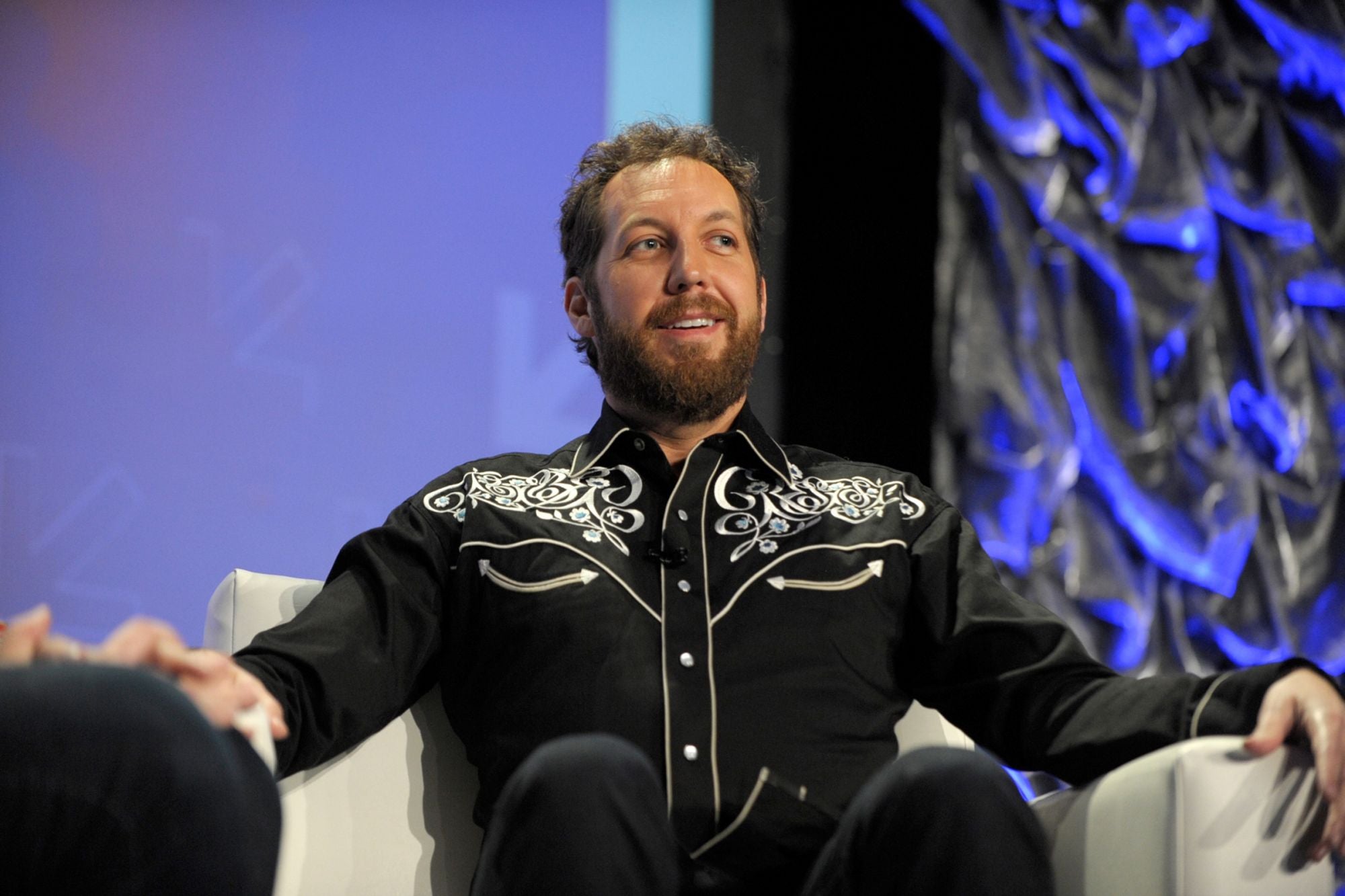6 Money Tips From Self-Made Billionaires Entrepreneurship is not an easy road. You must carve your own way to success.
By Deep Patel
Opinions expressed by Entrepreneur contributors are their own.

Becoming a self-made billionaire puts you in a league of your own. Of the approximately 585 billionaires in the US, about 360 have made their own fortunes. These are people who have made it big through hard work, sheer will, tenacity and being in the right place at the right time with the right idea.
We all want to know the secret to success. So, if you could sit down with a self-made billionaire, what kind of money advice would you seek from them? What were the key lessons they learned about managing their finances on the way to boundless fortune?
Here are some of the best pieces of advice offered up by self-made billionaires. Use these tips wisely, and you can put yourself on a path to financial solidarity and success.
1. Chris Sacca -- Be a cheap bastard.
Chris Sacca is known for his Midas touch as a tech venture capitalist. He was an early backer of Twitter, Uber, Instagram and Kickstarter. Those bets paid off, propelling him to billionaire status.
Sacca's best advice to young adults hoping to build their portfolio is: Don't spend your money! Instead, he advises you to pinch your pennies and have your priorities in order for the long haul. "Being a cheap bastard now means so much more freedom and choices later," Sacca said in an interview with USA Today.
He has observed that, too often, people allow debt to pile up while spending too much on buying things to fulfill their desires. If you can learn to live simply, you'll have money to spare and that will give you more options to start new projects or launch new ventures.
For young entrepreneurs hoping to follow in his path, Sacca cautions that it's not an easy road. Each entrepreneur must carve his or her own way to success. "There is no well-trodden route to where I am, no formula to replicate," he said. "But without exception, everyone I've ever met who is authentic, daring, empathic, tireless and willing to ask for help has gone on to be happy and fulfilled."
Related: Billionaire Venture Capitalist Chris Sacca on the 'Quickest Way to Get Rich'
2. Reid Hoffman -- Have a lifeboat.
He's often called the Oracle of Silicon Valley for his remarkable track record on building companies and his success as a capital investor. Reid Hoffman is a co-founder of LinkedIn and the dating website SocialNet, and was Chief Operating Officer for PayPal. He even worked on Apple Computer's eWorld, an early attempt at creating a social network.
Hoffman now works to educate entrepreneurs on career planning and risk-taking. He calls this ABZ planning. You have Plan A, which is a your current plan, the business you're trying to launch or the job you're working at. It's your plan to move up in the world.
Then you have a Plan B, your backup plan; it's what you'll switch to if you get out of Plan A. Maybe your Plan B is a side project you've been working on, or other jobs you're thinking of applying for. But your Plan B should be flexible. You should be open to pursuing multiple opportunities or having a variety of backup plans should your Plan A fall through.
But having a Plan B isn't enough. You also need a "Plan Z." This is your safety net, so if everything goes wrong, you won't be left completely destroyed. It's what Hoffman calls your lifeboat. Having a lifeboat option is important, because if potential failure could leave you bankrupt and homelessness, you won't want to take any risks -- and therefore you'll never grow.
For instance, when Hoffman was getting ready to launch SocialNet, he asked his father if he could live with him if the company didn't pan out. If that happened, Hoffman planned to find another job and work his way out of debt, but he knew he'd have someplace to go.
3. Warren Buffet -- Live simply and invest in yourself.
Known as the Oracle of Omaha, Warren Buffett is famous for shunning a lavish lifestyle (despite his $86.5 billion net worth). The CEO of Berkshire Hathaway has simple tastes, lives frugally and enjoys being a generous philanthropist.
Buffet still lives in the house he bought in 1957 for $31,500. He seldom buys new cars. He often grabs a cheap breakfast from McDonald's on the way to work. But there are some things that are worth investing in, according to Buffet. And at the top of that list should be yourself, he said in an interview with Forbes.
Whatever your weaknesses are, take steps to address them and overcome what might be holding you back. For Buffett, that weakness was public speaking. As a young man, he took a Dale Carnegie course and gained so much confidence that he proposed to his wife, Susan.
"Nobody can take away what you've got in yourself, and everybody has potential they haven't used yet. If you can increase your potential 10 percent, 20 percent or 30 percent by enhancing your talents, they can't tax it away. Inflation can't take it from you. You have it the rest of your life."
He also goes out of his way to show his love for friends and family, but he doesn't rely on extravagances to show others he cares. Instead, he might send news clippings by mail or personally drive to the airport to pick up a friend.
Related: Warren Buffett's 3 Top Pieces of Advice for Entrepreneurs
4. John Paul DeJoria -- Have an emergency fund set aside.
Life hasn't always been easy for self-made billionaire John Paul DeJoria, but his experiences have taught him valuable lessons.
Born into a poor immigrant household, he began working when he was 9, selling greeting cards and delivering newspapers to help earn money for his family. As an adult, he found himself homeless several times, including shortly after launching a line of hair-care products with his friend Paul Mitchell.
DeJoria would eventually see sales of John Paul Mitchell Systems hair products skyrocket. And he would go on to build other ventures, including founding Patrón Spirits Co. But the first several years of getting his business off the ground were grueling. DeJoria said their fledgling hair-care business constantly ran behind on paying bills. They finally felt they had turned a corner with the business when they could start paying bills on time after two years.
DeJoria's advice to young entrepreneurs is to make sure you have a cash cushion before you launch your business. "Before investing or starting a company, make sure you have enough money saved for at least six months to pay bills or anything else that might come up financially," DeJoria said in an interview with Business Insider.
5. Sara Blakely -- Don't quit your day job.
Sara Blakely, founder of Spanx, is the youngest female self-made billionaire ever to be included in the Forbes World's Billionaires list. She came up with the idea for Spanx when she was 27 and used $5,000 -- her entire savings -- to get her business off the ground.
But it was slow going at first, and she ran into many dead ends trying to get hosiery mills to manufacture a prototype. She persisted, until finally a mill owner (who ran the idea by his daughters) gave her a shot. Meanwhile, she continued to go to her day job, working her Spanx business as a side hustle until she was sure it was financially viable.
Through it all, Blakely pinched her pennies and avoided incurring any debt as she went through the process of launching her business. She wrote her own patent using a textbook and designed her product packaging with the help of friends. She never accepted any money from outside investors. She continues to own 100 percent of the company, debt free.
Related: Why You Shouldn't Quit Your Job to Start a Business
6. Dustin Moskovitz -- Understand that entrepreneurship is a high-risk path.
Dustin Moskovitz became one of the world's youngest billionaires as a Facebook co-founder, helping then-roommate Mark Zuckerberg launch the social media site from their college dorm room. He is also the founder of Asana, an enterprise project-management tool. Although he was able to find success at a young age, Moskovitz cautions others that becoming an entrepreneur is rarely a path to fame and fortune.
Entrepreneurship is a high-risk path, and the odds of achieving billionaire, or even millionaire, status are extremely low. Only a handful of companies end up growing to that kind of scale, Moskovitz said during a presentation to Stanford business students.
Entrepreneurs often work long, grueling hours and there's very little glamour to it, he said. According to Moskovitz, a surer path to wealth is joining a later-stage company and helping them grow it. You'll have a better chance of getting a high salary and achieving financial stability.
Moskovitz is also known for his simple lifestyle and his charity work through his foundation, Good Ventures. In answering a question on Quora, he wrote: "I never viewed money as being "my money.' I always saw it as "the money.' It's a resource. If it pools up around me then it needs to be flushed back out into the system."











